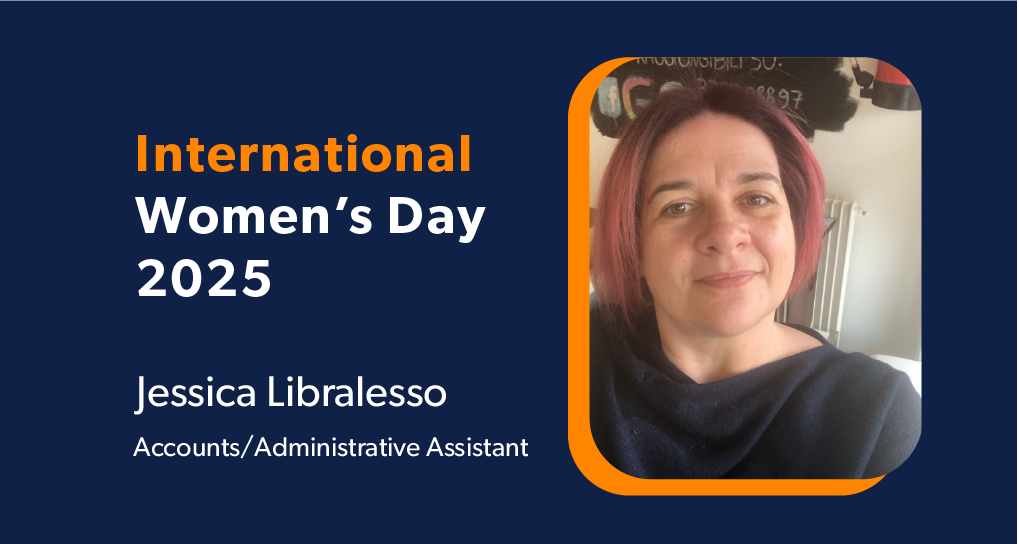This International Women’s Day we wanted to acknowledge the amazing work Jessica does for the SmartOffice team. We asked her a series of questions about her time working her, and also about being a woman in a male-dominated industry. Let’s hear it from Jessica herself…
Jessica’s journey to Ireland and landing a role with SmartOffice:
The idea of moving abroad had been on my mind since 2016, but the biggest obstacle for me was the language. I studied English both at school and in various courses over the years, but the lack of consistency in speaking it daily always held me back, to the point of postponing the move.
In April 2022, my husband was offered a job at Marriott. After careful consideration, he set off to explore Ireland, a country we have loved for as long as we can remember and have visited for ten years, at least once a year. His positive experience in daily life led us to make the decision to settle our family here.
It took me a year and a half to finally move. You know well how difficult it is to find a house in this area, and we also had a dog and four cats, which made our options even more limited.
Once I arrived, I continued working with my Italian clients. The fear of the language was always there, and on top of that, I discovered that the Cork accent was not exactly the one I had learned in my English lessons in Italy. This intimidated me a lot—I was afraid of not being able to understand and make myself understood. For this reason, I started attending evening language courses at UCC, and little by little, I gained confidence.
In May 2024, I began sending my first CVs to local companies, until one day I received a contact request from Adrian at SmartOffice. I was thrilled and prepared for the interview scheduled for 1:00 PM on July 5th… Too bad that my PC, due to work requirements, was set to Italian time, meaning it was one hour ahead of the actual appointment.
At first, I thought the company had decided to cancel my interview without notifying me—it wouldn’t have been the first time (in Italy, this is not uncommon). But once I realized the mistake, I contacted SmartOffice, apologizing profusely for the misunderstanding. To my great surprise, I received a response apologizing to me and offering the chance to reschedule the interview in the following days. You can’t imagine my astonishment—back in Italy, a similar situation would have led to indignation from the recruiter and a categorical refusal to reschedule. That was the first major difference I noticed.
During the interview, I expected the usual questions I had been asked in every job selection process in Italy: “Are you married?” “Do you have children?” “Do you plan to have more?” None of these, which are illegal in Italy as well as discriminatory, were asked. This left me a bit disoriented—why hadn’t they asked me these things? Did it mean the company wasn’t interested in me, given that my English wasn’t perfect? Maybe this thought is hard to understand in a society where this kind of discrimination is not common.
Then, when I naïvely pointed out that my English was uncertain, I was told that it wasn’t a problem for the company, that they were aware of it, and that despite everything, I was a good fit for the position. My joy was overwhelming! I left the building, sat in my car, and started celebrating like a child.
After passing the second interview with my uncertain English, on August 12th, my adventure at SmartOffice began. The team gave me a very warm welcome—every colleague was incredibly kind, respectful, and patient. Understanding my difficulty in expressing myself, they slowed down their speech and used simpler language when talking to me, and whenever they were chatting about silly things, they made sure to include me in the conversation. I truly appreciated this inclusive attitude.
I come from a work environment where newcomers are often seen as a threat or with suspicion. Here, the mindset is completely different.
What’s it like being the only woman, at present, on the SmartOffice team?
My experience has been amazing! Let’s just say a little estrogen was needed to balance out the excess testosterone! 😊 I don’t feel different, and I don’t feel like I’m seen as “a woman” per se, but rather as a member of the team, regardless of gender.
At Christmas, there was a pool tournament, and I was included in the competition. It was a very unusual experience for me because, in Italy, in similar situations, my female colleagues and I were often excluded, even though we were part of the company and present at the event.
From my experience and that of friends living in Ireland, gender diversity doesn’t seem to be a major issue. This doesn’t mean the problem doesn’t exist, but I’m lucky not to experience it in my workplace, despite it being predominantly male. The tech world has historically been male-dominated, but things are changing.
Do you think the tech/finance industry is becoming more inclusive for women, or is there still a long way to go?
I would make a distinction between the tech and finance sectors. In my experience, the finance industry is predominantly populated by women, although leadership positions are still mostly held by men. It’s not uncommon to find a male executive with a team made up almost entirely of women. On the other hand, change is happening more slowly in the tech world. When I was younger, tech schools were attended almost exclusively by boys, whereas today, more and more girls are enrolling in these programs. My niece, for example, is studying at a technical school. It will take some more time, but I believe the sector will eventually become more balanced.
What is one thing you wish more people understood about being a woman in a male-dominated work environment?
That there’s no need to make gender distinctions: we are professionals, period. Of course, there are different experiences and perspectives, but a person’s value doesn’t depend on their gender.
What do you love most about working at SmartOffice?
The freedom to be myself, without the fear of being judged or underestimated. I’m a precise person in my work, but also very sociable and humorous. In other environments, this attitude was seen as unprofessional, whereas here I can express myself freely. The calm and relaxed atmosphere allows me to work with dedication without giving up some moments of lightness.
Do you think that your experience as the only woman in the company has in any way influenced your role?
I should ask my colleagues about this; I have always given my best to pursue the company’s goals. In the past, my feminine perspective has been appreciated and valued, while at other times, I have experienced unpleasant situations that made me uncomfortable. On some occasions, I even changed jobs because of a toxic environment where some men felt entitled to impose their machismo just because they were owners or superiors.
If you could add another woman to the team tomorrow, what role would she have?
I would really love to have one or more female colleagues, whether in my department or in another one. It could even be my supervisor; I wouldn’t see her as a threat, but as an ally. And let’s face it… a bit of gossip and power-planning never hurt! 😉
Have you ever had a moment when you thought, “Yes, this is definitely a male-dominated work environment”?
When I worked in the Italian Air Force! I was 23 and surrounded only by men. The older military personnel were very respectful, while the younger ones were curious about my presence. At first, there was some distrust, but over time, we developed a great working relationship.
What’s the best thing about working with a team of men? And what’s the most interesting thing?
I find it very comfortable: there’s more pragmatism and less drama. Among women, unfortunately, rivalry dynamics often develop, which can be either productive or, on the contrary, destructive. This stems from a social context that forces us to excel in order to gain respect, and it’s a mindset that we need to change.
What advice would you give to women who want to enter fields like technology, finance, or automation?
To follow their own inclinations, without being influenced by gender. There are no “men’s” or “women’s” jobs, only passions and talents.
If you could give one piece of career advice to your younger self, what would it be?
Don’t let others dictate what you should or shouldn’t do. Making mistakes is part of the journey, and only those who don’t make mistakes never learn. Be wary of those who try to clip your wings “for your own good”: often it’s just envy.
What is one change you would like to see in the industry to make it easier for women’s professional growth?
This is a very broad topic, and I will focus on an aspect that is particularly close to my heart, speaking from my Italian experience, as I have only recently moved to Ireland. I would like to see women no longer forced to choose between career and family. Unfortunately, women are often labeled by society as selfish if they choose to pursue a career: “You’re not a real woman if you don’t have children, you’re useless,” or we are labeled as “parasites” by companies who see the choice of having children as a personal affront: “Now you stay home for a year or more,” or “We have to hire someone else to replace you, and pay them; it’s a huge expense for the company,” “You put us in a difficult situation,” etc. Very often, when a woman returns to the office after maternity leave, colleagues and the boss start isolating her, which inevitably leads to voluntary resignation. In Italy, unfortunately, mothers are seen as a “problem” by companies, who fear the costs and absences due to maternity leave. Until a few years ago, many women were forced to sign blank resignation letters when they were hired, in case they became pregnant. Fortunately, this practice has been banned, but the mindset is still deeply rooted. The change must come from society to allow women to thrive both in their careers and in their personal lives, without guilt or penalties.




